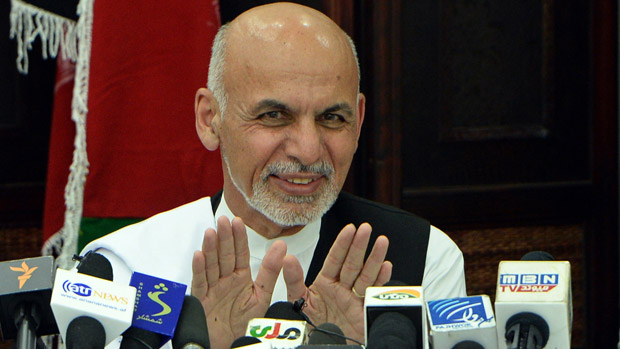Ashraf Ghani: what you need to know about Afghanistan's new president
Described as a 'temperamental technocrat', the 65-year old leader takes over amid continuing violence

A free daily email with the biggest news stories of the day – and the best features from TheWeek.com
You are now subscribed
Your newsletter sign-up was successful
Ashraf Ghani has become Afghanistan's new president, bringing Hamid Karzai's 13-year rule to an end.
Following a long and bitter campaign overshadowed by allegations of vote rigging, Ghani and his opponent Abdullah Abdullah signed a US-brokered power sharing agreement last week. However, the Taliban have dismissed the unity government as a "US-orchestrated sham", according to the BBC.
In the country's first democratic transfer of power, the 65-year-old Pashtun leader was sworn in as president today, telling the country "we are tired of insecurity and our message is that of peace".
The Week
Escape your echo chamber. Get the facts behind the news, plus analysis from multiple perspectives.

Sign up for The Week's Free Newsletters
From our morning news briefing to a weekly Good News Newsletter, get the best of The Week delivered directly to your inbox.
From our morning news briefing to a weekly Good News Newsletter, get the best of The Week delivered directly to your inbox.
But his inauguration was marred by violence after a Taliban suicide bomber killed four civilians outside Kabul airport - a bloody reminder of the challenges ahead.
Last week, Afghan election monitors revealed that Ghani had won 55 per cent of the vote in the run-off against Abdullah in June, although there were allegations of fraud throughout the election process.
Ghani left Afghanistan in 1977 to study anthropology at Colombia University in New York and did not return to his homeland for another 24 years.
He went on to teach at universities in the US and became a respected academic and commentator. He began working for the World Bank and later the United Nations, where his work as the organisation's senior special advisor saw him return to Kabul in the wake of the 9/11 attacks in 2001.
A free daily email with the biggest news stories of the day – and the best features from TheWeek.com
In 2002, he was hired as Karzai's finance minister and worked actively to stamp out endemic governmental corruption. His other achievements include setting up a new currency and tax system, as well as encouraging wealthy expats to return home, according to Al Jazeera.
He is a divisive character and a fierce critic of the international community, with a "well-known reputation for having a quick temper," according to the BBC. He is often described as the "temperamental technocrat" and The Guardian reports that he even "toyed with anger management classes to tame a notorious temper".
"He never allowed anyone to get too close, remaining aloof," the author Ahmed Rashid, who has known Ghani for decades, told Al Jazeera.
After losing part of his stomach to cancer, some argue that the near-death experience contributed to his "fierce determination".
He sparked widespread controversy with his choice of running mate in this year's election, by selecting General Abdul Rashid Dostam, a former warlord he once denounced as a "known killer", in order to widen his support base.